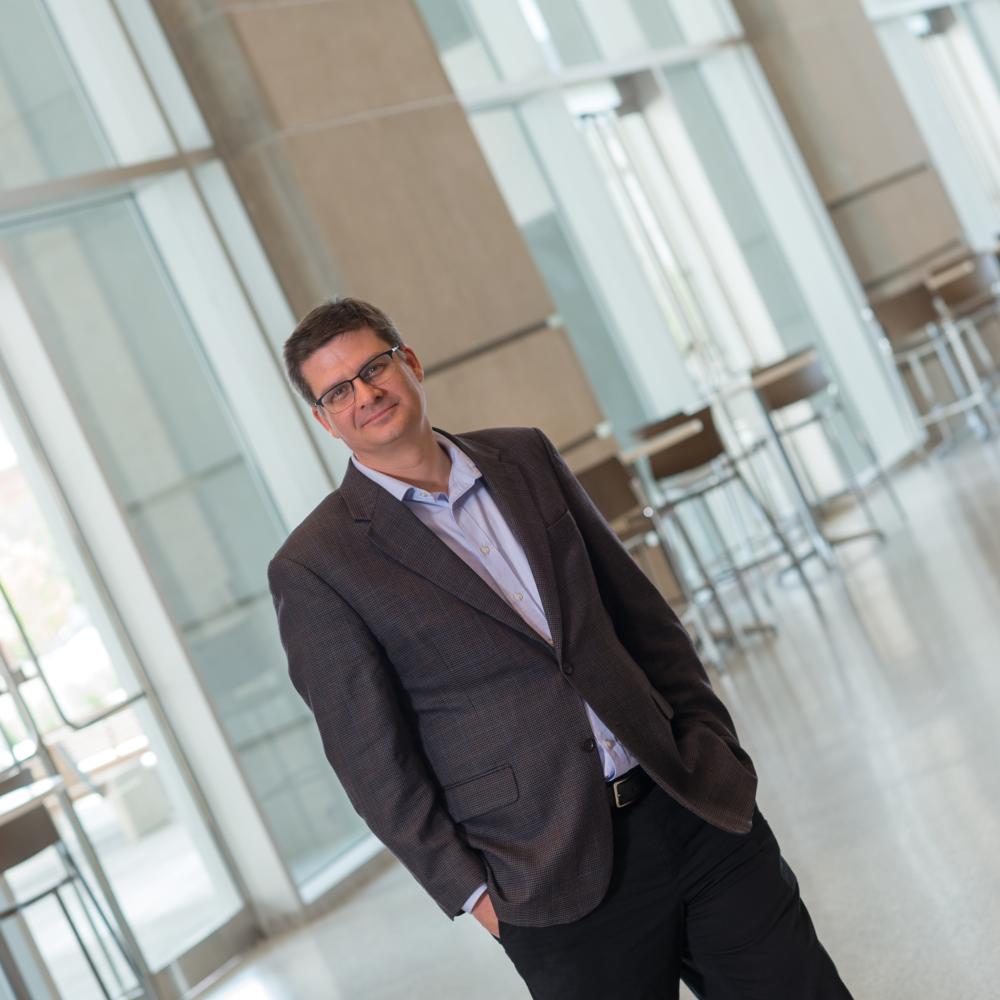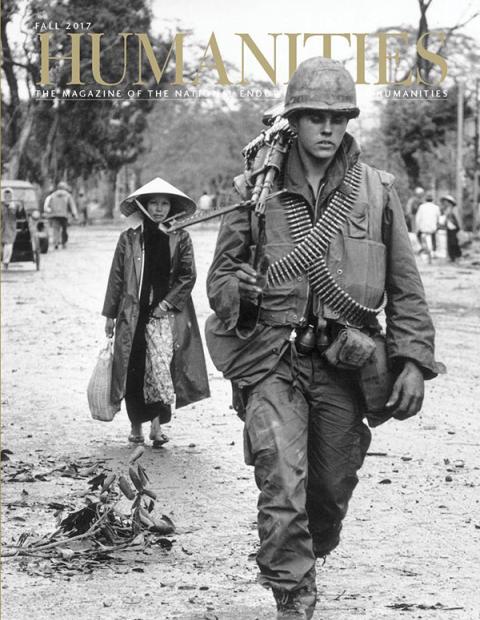Stuart Rockoff is a historian, “perfect training,” he says, for his role at the Mississippi Humanities Council, which seeks to serve all in a state where history is often contested terrain.
Only the third executive director of the council since its 1972 founding, Rockoff came aboard in November 2013. For him, it was “a great next step,” following his job as historian at the Institute of Southern Jewish Life.
A native Texan, with a doctorate from the University of Texas at Austin, Rockoff is “a Mississippian by choice.” He has called the state home since 2002 and is raising his family here.
He finds inspiration in a state still coming to terms with its past. “You can’t understand Mississippi today without understanding its history. The council has always done a very good job of being inclusive and of telling a complete and complicated story, and helping other people tell those complicated stories.”
Rockoff highlights his council’s mission to enrich communities through conversations about their history and culture. “We are trying to be the entity that can bring different sides on questions to the table to have an exchange of ideas that is thoughtful and civil.”
Ideas on Tap, a monthly panel discussion at a Jackson eatery/music club, focuses on current issues—the state’s youth brain drain, public education, and voting rights, for instance—in a setting more fun and informal than a college campus or public library.
A 2016 program on the Mississippi state flag—a flashpoint for its inclusion of the Confederate battle flag—“turned out incredibly well,” Rockoff says, with panelists and audience members sharing multiple perspectives. “We were able to set a tone that everyone’s not going to agree with each other. We may not even change any minds. That’s okay.”
Fireworks, sound bites, and a crowded forum weren’t the goals; promotion was limited. Still, passionate people who probably would not otherwise interact did that night, and they listened. The respectful vibe helped humanize opposing sides, and Rockoff calls the outside security they hired, a first for a program, “the best 500 bucks I ever wasted.”
“It ended up being a very thoughtful conversation.” After another flag panel on the Coast, a man sought Rockoff’s advice on bringing the issue to fellow church members.
Rockoff is also talking with fellow state directors about fostering the conversation about Confederate monuments, more critical now in light of the white supremacist rally that turned deadly in Charlottesville, Virginia.
“We’ve worked with the Sons of Confederate Veterans; we’ve worked with the NAACP. Because we have those relationships, because we’re seen as the honest broker, we can convene the conversation,” he says. The aim is to understand what monuments are, the values they communicate, and whether they reflect Mississippians today.
For a busy 2017, “I was chasing two big cars and I caught both of them,” he says. In partnership with Visit Mississippi, the counci administered grants supporting 88 local celebrations of the state’s bicentennial. The second one was a racial equity grant program with the W. K. Kellogg Foundation that supports exploration of Mississippi’s history of race and racism and its current impact. Among its results were programs such as Behind the Big House’s slave quarter tours during Holly Springs Pilgrimage tours of antebellum homes and a new documentary on civil rights activist Fannie Lou Hamer.
The council is a catalyst. The Telling Project tied into the National Endowment for the Humanities’ military veterans’ initiative in 2015. Funds developed two separate productions, partnering with New Stage Theatre and with the University of Southern Mississippi theater department, to bring Mississippi veterans’ stories to the stage, with those same veterans as performers.
The positive impact hits home with Rockoff. “Incredibly moving,” he describes the closing ceremony for student/inmates in an education program at a women’s prison, where their gift, a paperback of writings by Ida B. Wells, moved some to tears. “Just the incredible hunger for this sort of learning, for a population that has been often dehumanized,” he marvels.
He sees that hunger, too, in the unexpected crowds that packed the debut of the Mississippi Book Festival in 2015. “We were shocked when every seat at every panel was filled, with people waiting to get in,” he says.
And Rockoff sees the council’s impact in the heartfelt community connections that come out of programming. Celebrations of the Pulitzer Prize centennial included a session with retired Sun Herald editor Stan Tiner and former U.S. Poet Laureate Natasha Trethewey. Talking about the newspaper’s coverage of Hurricane Katrina, “Stan pulls out the actual Pulitzer and he says, ‘This prize doesn’t belong to us. It belongs to you, the people of the Gulf Coast!’ and he handed it into the crowd and they passed that Pulitzer Prize around,” Rockoff says, sharing a pic of the prize in his own hand.
“That was another goosebumps moment.”
Tell me more, Stuart
In middle school or high school, what was your favorite foray into the humanities? In my high school U.S. history textbook, the section “When Historians Disagree.” The idea that history was not just a set of facts but an argument over what those facts meant opened a new world to me.
My three favorite historic sites are . . . the Temple Mount in Jerusalem, the cradle of three religions; Ellis Island, both as an immigration historian and the grandson of someone who came through in 1910; and Windsor Ruins, the remnants of an antebellum mansion. It is the perfect symbol of the decline of Mississippi’s planter class.
For fun, I like to . . . get up early Saturday mornings to watch English Premier League soccer games.
What do you wish every American knew about our country’s history? The Immigration and Naturalization Act of 1965 was the most revolutionary law that hardly anyone knows about. It had the unintended consequence of dramatically changing the sources of American immigration.
Interesting items that are Jewish and Southern at the same time? Duck decoys made from repurposed wood from the old Vicksburg synagogue and the only surviving issue of a short-lived Yiddish newspaper from Atlanta in 1908 that featured both the Zionist and Confederate flags on its masthead.


